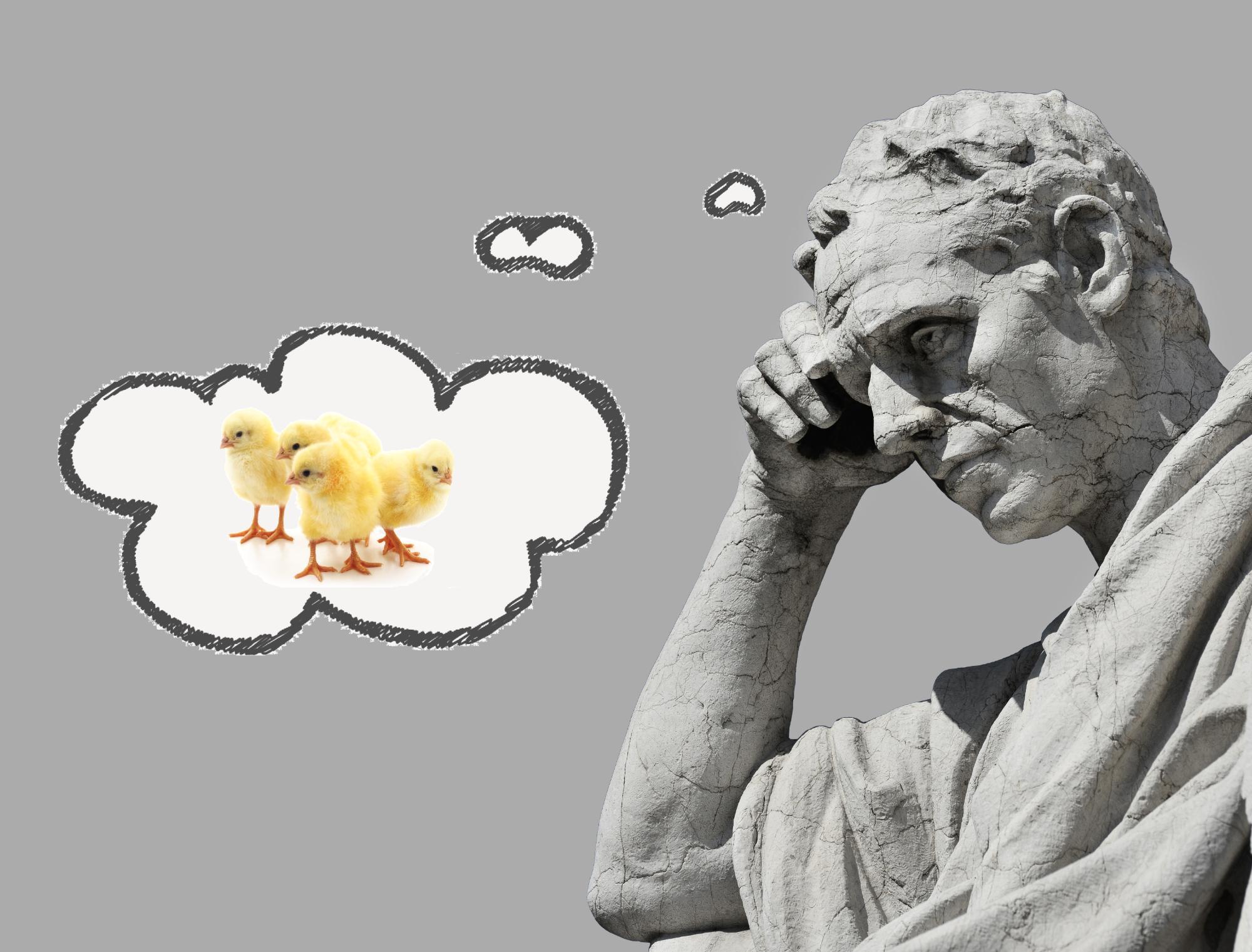
Historical Thinkers Who Led Plant-Based Lifestyles
If you are a vegetarian, chances are that there is someone in your life who is convinced that you are making this choice as an act of rebellion. After all, you must want to partake in the ritual of a family recipe or a celebration roast. You challenging person, you.
Welcome to the club.
Although you may see yourself more as a fly-under-the-radar type of person, becoming a full-time vegetarian takes some serious cojones. There are people that will always question your choice. You will hear over and over, “But don’t you miss meat?” You are bucking the standard American diet, and not everyone is going to be happy with your choice.
Turns out that you are in good company and not just in the present day and age. Historical figures have thought long and hard about this choice and many notable names have come out pro-veggie.
Just. Like. You.
Whether you waxed poetic about "The Republic" in University or just know that he was a smart Greek dude, Plato was the kind of person who questioned everything. Since we are looking back at the 400s BCE, it can’t entirely be certain what he ate (because Instagram was in its infancy).
However, if the man adhered to his own words as written in "The Republic", Plato's character Socrates asserts that a vegetarian city is the ideal because meat leads to decadence and war - while vegetarianism avoided indulgent living and was a path to peace.
This Italian renaissance man was one of those annoying people who was good at everything he did. Again, the fact that he lived five centuries ago certainly makes his everyday diet debatable. However, Italian explorer Andrea Corsali wrote the following about da Vinci: “Certain infidels called Guzzarati are so gentle that they do not feed on anything which had blood, nor will they allow anyone to hurt any living thing, like our Leonardo da Vinci.” Da Vinci himself never wrote anything declaring that he was a vegetarian. However, he did write a lot about loving animals. Coupled with this account, believe what you will.
Moving onto people whose diet is of greater record, physicist Albert Einstein wasn’t a vegetarian until the last year of his life, although prior to that he admitted, “I always ate meat with a guilty conscience.” He came to believe that, “"Nothing will benefit health or increase chances of survival on earth as the evolution to a vegetarian diet,” which sounds just as pertinent today as it did over 60 years ago.
The brilliant Russian novelist also used his pen for opinion pieces, specifically on moral philosophy. He advocated vegetarianism as one of the first steps towards a good and decent life, and has been quoted, “A man can live and be healthy without killing animals for food; therefore, if he eats meat, he participates in taking animal life merely for the sake of his appetite. And to act so is immoral."
Many inventions have gone out of style or found to be a mere stepping stone, but the light bulb is not one of them. After becoming ill, Mr. Light Bulb himself decided to try out a vegetarian diet. He felt so much better that he decided to renounce meat “in all forms.” He has also been quoted as saying, “Non-violence leads to the highest ethics, which is the goal of all evolution. Until we stop harming all other living beings, we are still savages." We wouldn’t suggest going that far when explaining your reasons behind your vegetarian diet, but to each their own.
Best known for her novel Little Women, Louisa May Alcott grew up in a vegan household before the word vegan was even invented. Her father, A. Bronson Alcott was a social activist when it came to shunning meat, placing it on the same platform as slavery. In an 1843 letter, he wrote, “It is calculated that if no animal food were consumed, one-fourth of the land now used would suffice for human sustenance. And the extensive tracts of the country now appropriated to grazing, mowing, and other modes of animal provision, could be cultivated by and for intelligent and affectionate human neighbors.”

